Film Review: Ma Rainey’s Black Bottom (2020)


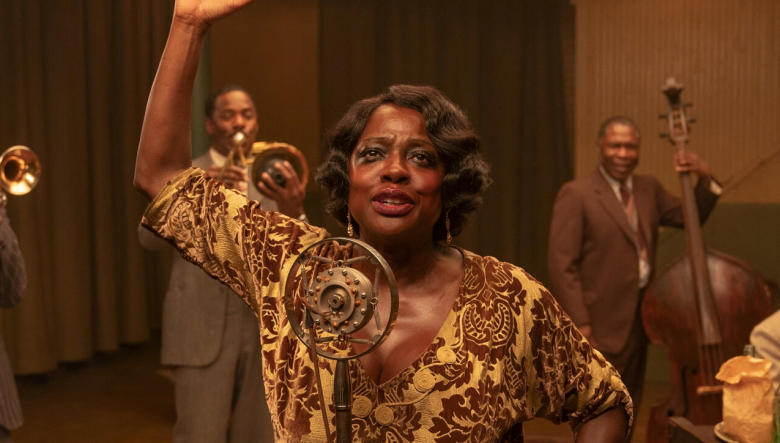
Ma Rainey’s Black Bottom opens as two young black men run through the forest. The way they dress tells us this is the Jim Crow south, and that they are running in the first place (and that dogs can be heard barking in the distance, and that their pace is exhausted and clumsy) suggests something much more sinister. When they run past a pair of torches set up in the woods, a moment of terror is felt, as history has taught us what this likely means. But, we quickly realize, these young men aren’t running from something but towards it: a tent revival featuring the famous blues singer Ma Rainey. The year is 1927, and the place is packed.
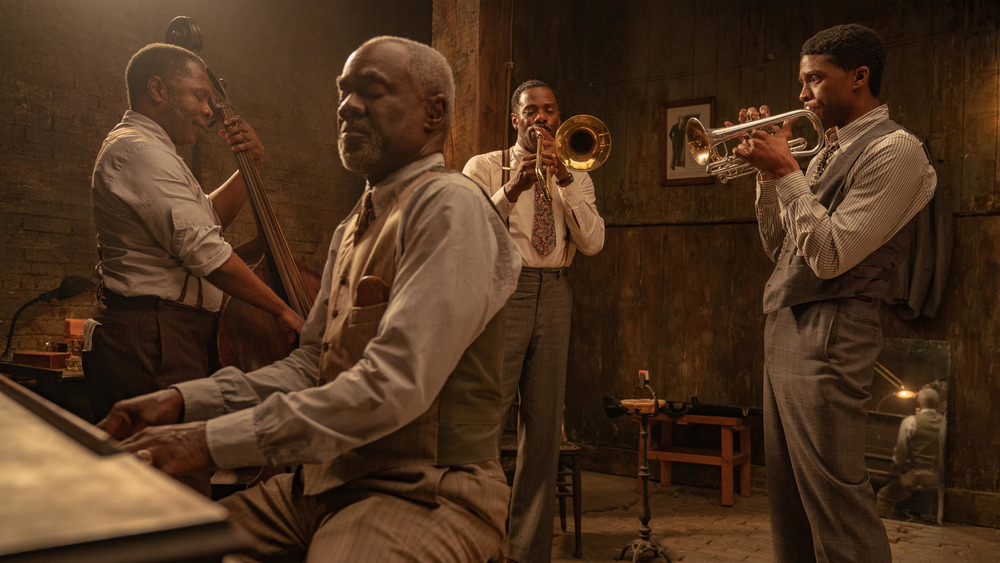
A side effect of the northern migration of those fleeing Jim Crow was a proliferation of black music in cities like New York and Chicago. As the blues gained popularity among white audiences, Ma Rainey – a larger-than-life singer with an unapologetic swagger and a pioneering, independent, and openly queer lifestyle – was an early standout. Looking to cash in, white-owned recording studios began snatching up black artists like Ma (born Gertrude Pridgett in Columbus, Georgia in the 1880s) and committing their songs to small flat circles. As is often the case, though, when black art is commodified, the money made goes predominantly into white pockets. This exploitative economic model is just one of many ways that racist systems maintain control over marginalized communities, and Ma Rainey’s Black Bottom damned well knows it.
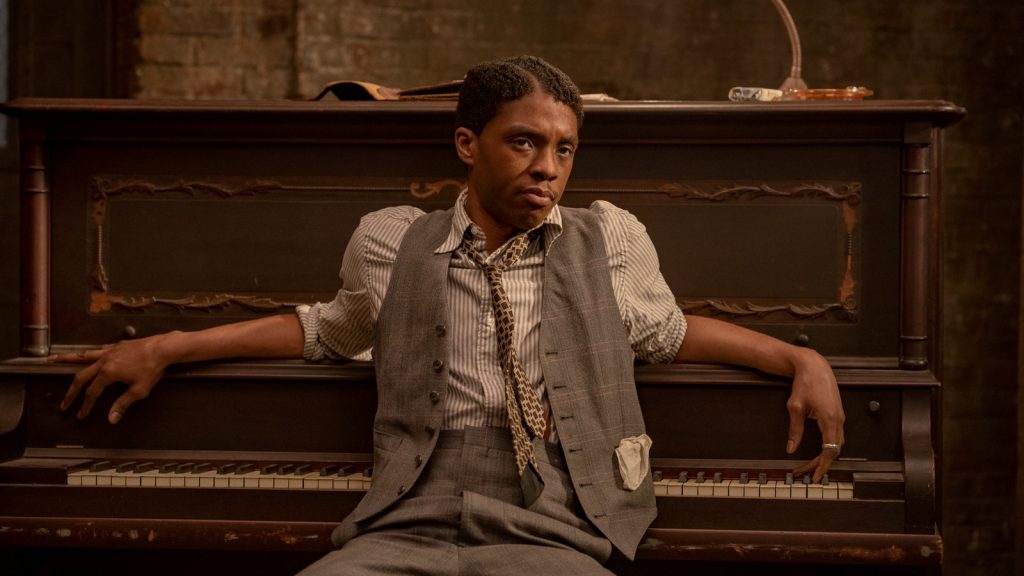
Taking place on a particularly hot summer day in a small Chicago recording studio, Ma Rainey’s Black Bottom is a microcosm of racial, class, and generational gulfs. By pitting Levee (a superb Chadwick Boseman in his final performance, and arguably his best) – a hot-headed trumpeter – against Ma (a spectacular Viola Davis), her band, and the white establishment studio owners, Director George C. Wolfe is able to tackle these issues from multiple angles while maintaining a tight grip on their importance. That Levee and Toledo (the band’s piano player, played by an always wonderful Glynn Turman), for example, see things from philosophically different perspectives doesn’t change that they are both black men in America. Even though they agree their struggles are the same, they disagree on why or what to do about them. Using layers of foreshadowing and allegory, Wolfe continuously employs a cruel symbolic fatalism that hints at both fate and the future (watch Levee repeatedly try to open a locked door, then examine the room when he finally gets in). This fatalism, though, is not reserved for individual characters but is meant instead to represent whole generations.
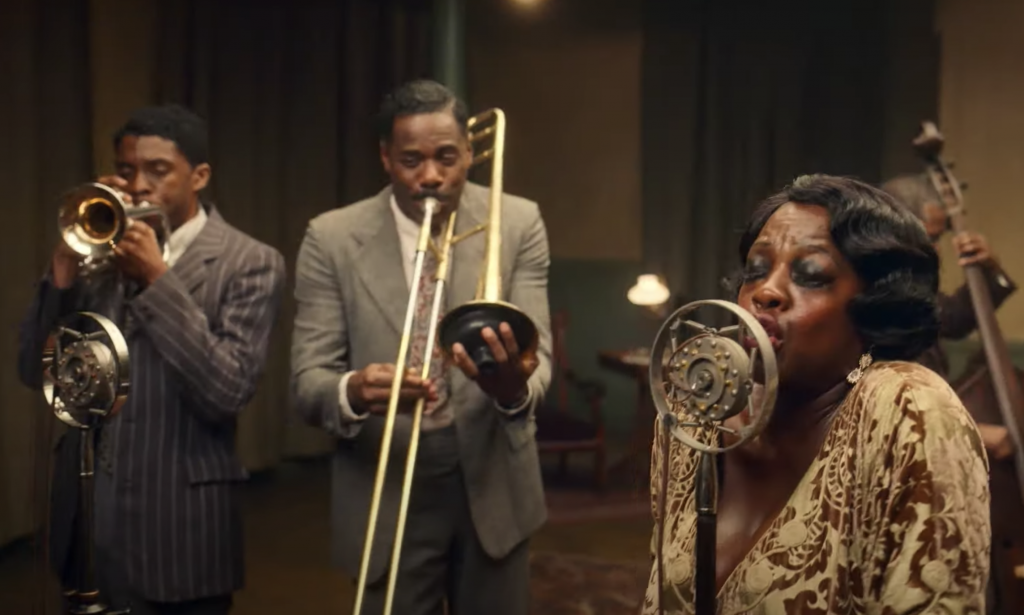
In one of the film’s most charged scenes, Levee is criticized for how he interacts with the white studio owners, Mr. Sturdyvant (Jonny Coyne) and Irvin (Jeremy Shamos). The tale he tells in his defense is riveting, but that he has to explain his actions at all is quite striking when you think about it. By implying that there is a “correct” way to deal with white folks, therefore, implies that there is also an “incorrect” way (something amplified many times in the last one hundred years, but recently exemplified last summer during the George Floyd protests). That black people require different modes of communication just to keep white people happy or pacified is an appalling notion that all too often ends in tragedy – especially when the police are involved.
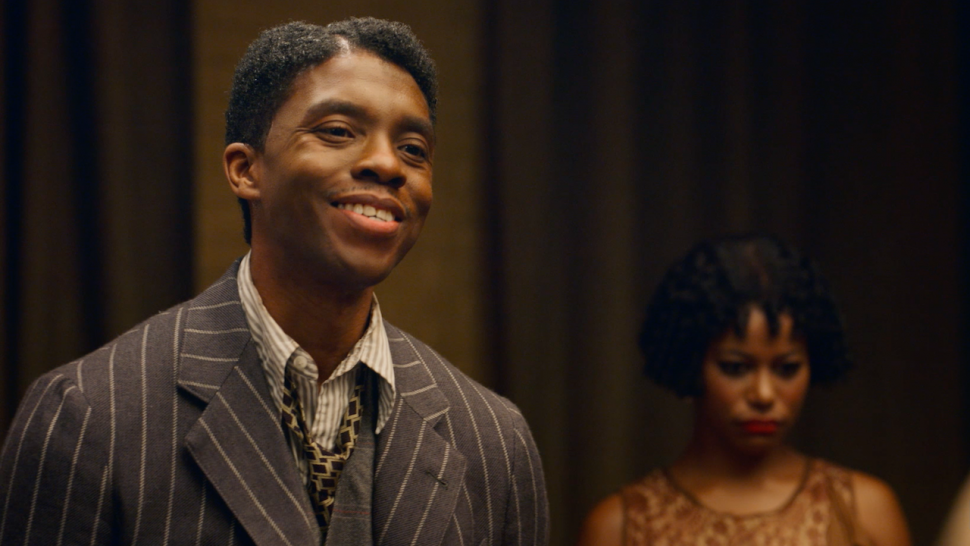
As with any good period piece, Ma Rainey’s Black Bottom uses its backdrop as a starting point for a larger discussion about contemporary culture. Wolfe easily draws parallels from 1927 to today because there are still a disturbing number of parallels to be drawn (a frightening thought). Films like Ma Rainey’s Black Bottom aren’t meant to be viewed as a history lesson but as a wake-up call for white people who, for generations, have both continuously consumed and appropriated black contributions and willfully ignored merited cries for freedom, equality, and dignity. At one point, Ma laments to her trombone player, Cutler (Colman Domingo), “White folks don’t understand about the blues. They hear it come out but they don’t know how it got there.” That sounds about right to me, and her statement could apply to most black art in general – movies included. The film’s final sequence is a harsh, jarring reminder of this reality.
Long Live Chadwick Boseman.
